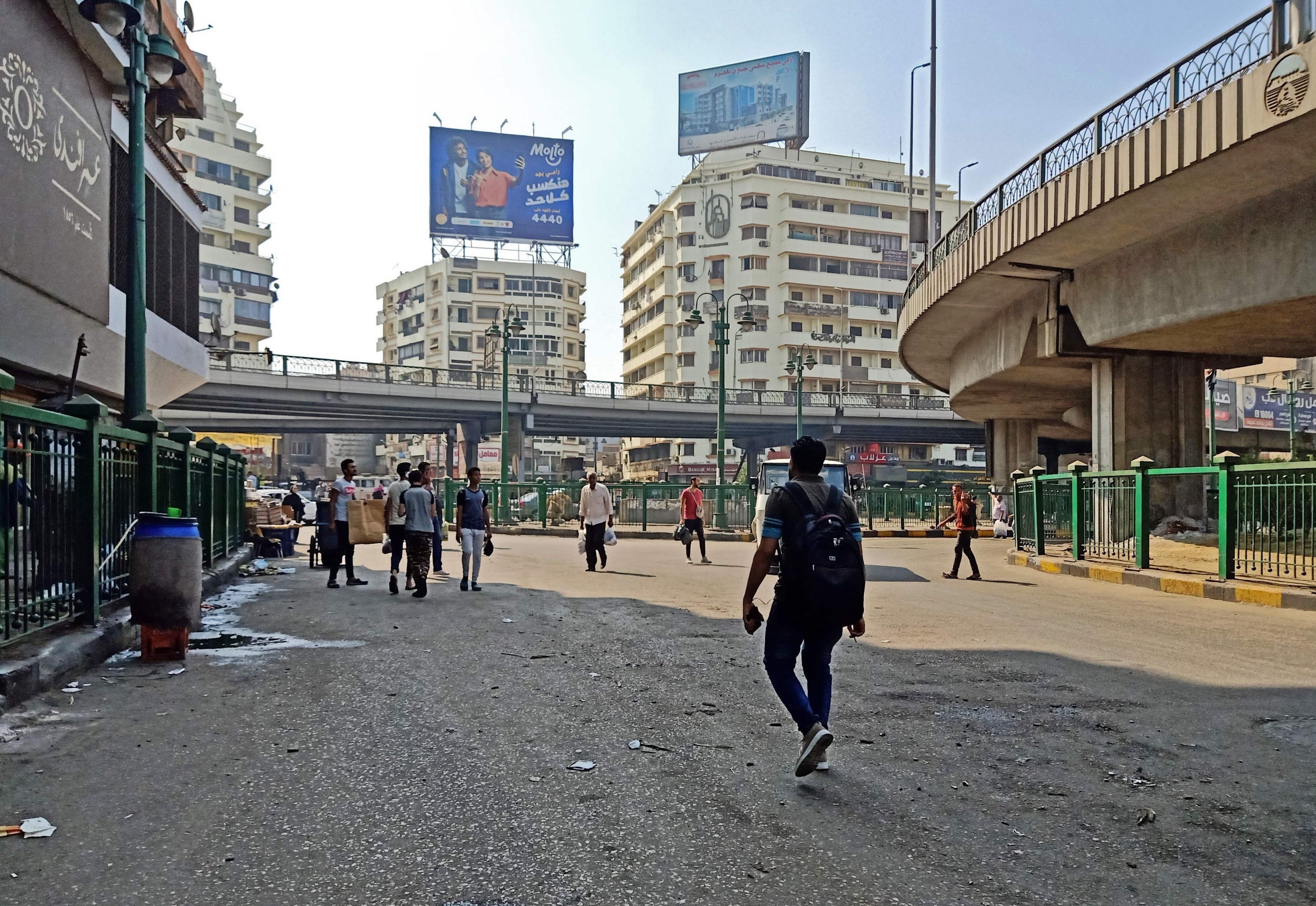Egypt prepares for day of possible violence amid calls for duelling protests over Sisi's rule
'The security forces are covering every inch. Police are crazy, arresting hundreds'

Egypt readied itself for a day of potential violence as both anti-government protesters and supporters of President Abdel Fattah el-Sisi were being called to take to the streets.
More than 2,000 people have been rounded up by security forces across the country after two nights of anti-government protests over corruption allegations last weekend, according to a tally by the Egyptian Centre for Economic and Social Rights, a human rights group. Mohamed Ali, an exiled military contractor and one time actor who had a falling out with the military regime and blew the whistle on alleged corruption within Mr Sisi’s circle, called for the original protest and summoned people into the streets again.
But supporters of Mr Sisi, who has the backing of the White House as well as Western countries and Arabian Peninsula, are also reportedly organising protests, according to local media, with pro-regime entities reportedly ordering political adjutants to gather people in city squares in support of the president.
Egypt’s top prosecutor has ordered an investigation into the protests, announcing that 1,000 suspects are being grilled for participating in the protests, which erupted in at least five provinces, according to the official MENA news agency.
Observers in Cairo, the capital, described the formidable presence of security throughout the city, with police stopping passersby at iconic crossroads and demanding identification or access to smartphones.
“The security forces are covering every inch,” said one Cairo analyst and journalist. “Police are crazy, arresting hundreds. All the people whom I know are too afraid to protest.”
Tightly controlled state and private media has begun to tarnish the protesters as supporters of remnants of the exiled Muslim Brotherhood organisation, whose elected government Mr Sisi toppled when he assumed power six year ago.
“For sure, last week shocked them they weren’t prepared and you could see that in the way they initially responded. They were clearly caught flat-footed,” said Michael Hanna, an Egypt expert at the Century Foundation, a New York think tank. “Once the narrative took hold and the images starting going around they obviously reacted, and you see that in this big wave of arrests.”
Egypt’s State Information Service, which oversees accreditation for international media, warned correspondents to “only publish what they observe themselves from their known, credible sources that must be confirmed by two other credible sources that have also observed the same incidents with their own eyes.”
They don’t know if this is one off, or something they have to really contend with. The only reaction they have is to escalate repression
The scope of the crackdown suggests a deepening of the repression that has already choked off much of the country’s political space. Among those arrested have been foreigners, including a Dutch citizen and a Jordanian, and liberal activists such as Khaled Dawoud, a journalist and writer who likely had little to do with the protests.
“They are doing the kinds of things they know how to do, which is put as many people in jail of people who could be connected to the protests or could latch onto them in the future to embarrass the regime,” said Mr Hanna. “They’re trying to intimidate others from going out.”
But the apparently spontaneous, leaderless nature of the protests presents a challenge for security forces. In the past, when the regime confronted hierarchical organisations such as the Muslim Brotherhood, it could stymie any subversive activity by arresting leaders. In the most recent protests, there were no leaders, just Mr Ali and another activist leaking details about corruption and calling on people to revolt.
“It’s harder to sustain protests without organisational structure but it’s much harder to crack down,” said Mr Hanna. “They don’t know if this is one off, or something they have to really contend with. The only reaction they have is to escalate repression.”
Mr Ali is an unlikely revolutionary leader. The 53-year-old appeared earlier this year in the Spanish version of Vanity Fair, described as a well-coiffed “Catalan Pharoah,” who had decided to settle in Barcelona for business reasons. According to a series of videos he released online earlier this month, he turned against the regime after Mr Sisi’s generals bilked him of $13 million for work he did building “villas” and hotels for the senior officers.
Mr Sisi’s violent crackdown on the protests appears to have elicited little reaction from Washington and other western capitals who sell Egypt weapons. Mr Hanna said Washington officials assumed that “Egypt was a closed file,” and that they were struggling to adjust to a potential new reality.
US Senator Chris Murphy, an outspoken Democrat official critical of the presidency of Donald Trump, was among the few to address the human rights concerns raised by the protests. “We expect demonstrations to be allowed in Egypt and will hold the regime responsible if it responds with force and arbitrary arrests,” he told Al Jazeera.
Join our commenting forum
Join thought-provoking conversations, follow other Independent readers and see their replies
Comments
Bookmark popover
Removed from bookmarks